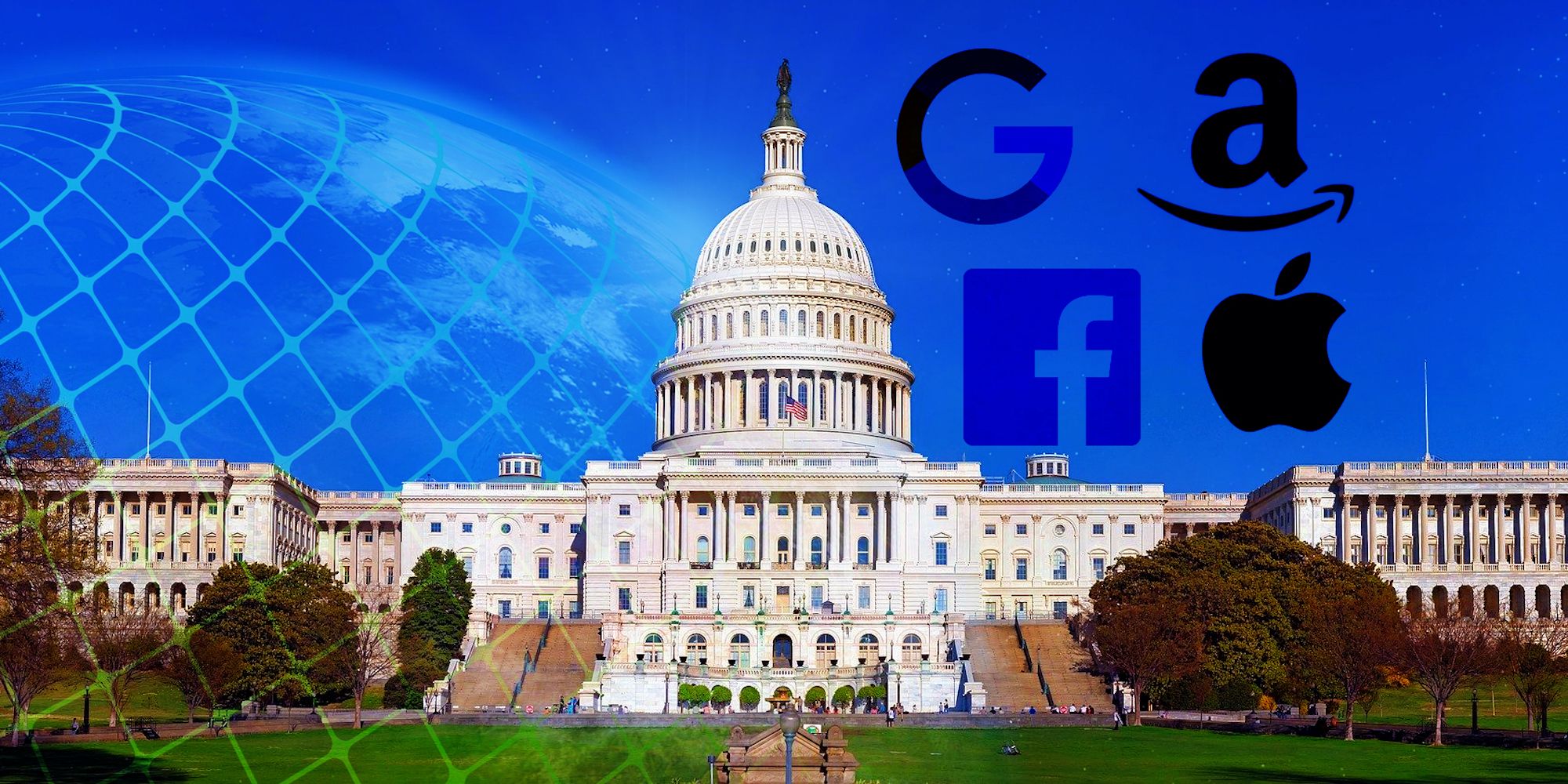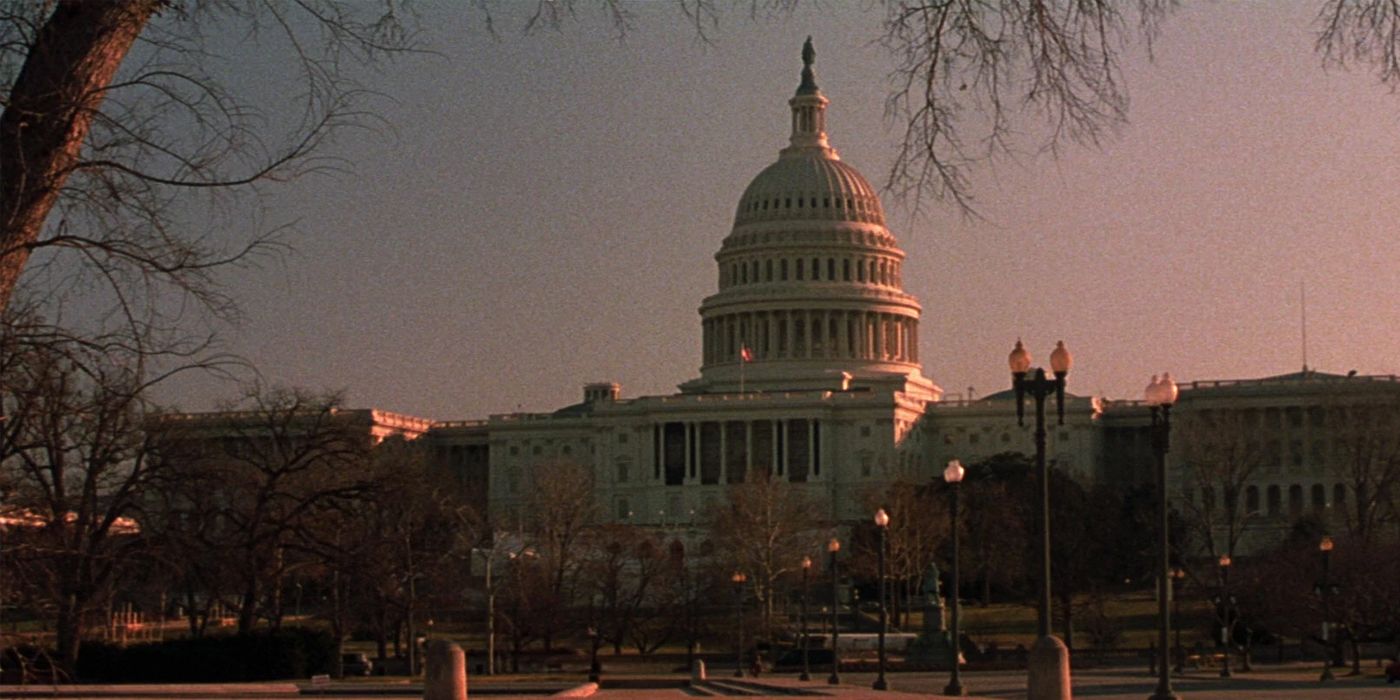A selection of the titans of the tech industry entered the political arena today to do combat with the duly elected representatives of the people of the United States of America. Apple's Tim Cook, along with Google's Sundar Pichai, Amazon's Jeff Bezos, and Facebook's Mark Zuckerberg were all digitally projected into the house of representatives to respond to questions and provide testimony regarding their companies’ roles within, and impact upon, the competitive environment of the U.S. economy. Antitrust was the primary impetus for today’s gathering, though questions also delved into the themes of prior hearings, such as the companies' impacts upon political speech, misinformation, and national security.
Some have compared the tech giants to the robber barons of the early 20th century, a period during which monopolies and oligopolies within industries vital to the economic development of the country resulted in a crushingly anti-competitive market. The question has been on the mind of many yet again, "does big tech have too much power?" Meanwhile, the key difference that one might draw between the two periods is that the earlier antitrust cases produced negative externalities for producers as well as, and especially, for consumers. As Rep Sensenbrenner (R-WI) noted in his exchanges with Bezos (as well as Pichai), attempts to apply similar remedies, such as the breaking up of big tech, might negatively impact consumers. The CEOs agreed.
The CEOs began their testimony while emphasizing that in many ways none of them are actually a monopoly. Bezos specifically noted that Amazon views its participation in the market and provision of a platform not as a “zero sum game.” The other CEOs expressed similar sentiments about their companies’ creation of value for other producers as well as consumers. Zuckerberg also seemed to want to reorient the focus to examine companies’ entanglements with politics as well as other aspects of modern society. However, Rep. Cicilline (D-RI) began the grilling by reasserting the focus on investigating competitive practices. “Why does Google steal content from honest businesses?” Similar claims were made against the other firms throughout the day, though they all uniformly denied such activities.
Additional Questioning & What Comes Next?
The new giants of industry in the twenty-first century deliver extreme value to consumers while creating new challenges within previously more stable markets for producers. They have created platforms, however, some feel that these platforms are overly extractive or that they are pressured when they do begin to present competitive challenges to the titanic firms that host them or compete with them in the open market. Thus, the House of Representatives spent the day attempting to smoke out further details about rumored anti-competitive practices. Some of these attempts seemed to draw upon stretched interpretations of ordinary market research practices on a tilted stage and, in one instance, high-brow work humor, specifically a comment from Mark Zuckerberg about Facebook someday buying out Google. Meanwhile, others dug deeper into behavior that potentially crossed a line into illegal anti-competitive behavior.
The event was sparsely attended due to COVID-19. Rep. Neguse (D-CO) referenced multiple instances in which Amazon is alleged to have behaved in anti-competitive ways, referring to an emerging concern that an “innovation kill zone” is becoming entrenched so as to favor the operations of the major tech firms with enhanced surveillance capability over emergent market participants. Similar examples cited by other representatives included Diapers.com and Random House. Rep Neguse further requested commitment from Pichai to clarify language regarding the use of information collected from competing applications. In response, Pichai stated that the primary use of data is to improve user experience and that it is collected with consent. Cook, Zuckerberg, Pichai, and Bezos all featured similar questioning regarding their collection and use of data as Congress sought to probe deeper into whether their collection efforts might constitute antitrust violations or require new forms of regulation.
Additionally, Representative Gaetz (R-FL) reiterated doubts about Facebook’s commitment to the value of freedom of speech for people of all political stripes, while also questioning Pichai regarding Google’s linkages to Chinese military programs. In the Facebook case, Zuckerberg received pressure from both sides, as Rep. Jayapal (D-WA) questioned whether Facebook was “so big” that it did not need to be concerned about pressure to further limit hate speech. Meanwhile, Pichai noted that claims of direct cooperation with Chinese military were “Absolutely false” while also later mentioning that Google had even experienced cyberattacks originating in China. Rep. Gaetz did also note the affiliation of Google partners with the Chinese government. With regard to entanglement in politics in the U.S., Rep. Jordan (R-OH) deliberately questioned Pichai, “Will Google tailor its features to help Joe Biden?” Pichai responded that doing so would be “against [Google’s] core values.”
The hearing concluded with a brief inquiry from Rep McBath (D-GA) in which each of the leaders reiterated their commitment to increasing the representation of women and persons of color within their organizational leadership. Rep. McBath also questioned Zuckerberg about cookie use, accusing Facebook of having violated its prior commitments to users, and challenged Bezos to commit to reporting all sale of stolen and counterfeit goods on Amazon. The next step in the process involves the House Judiciary antitrust subcommittee publishing the findings in which they will suggest ways of addressing the market dominance and power of these increasingly dominant firms. The report will be prepared at a time when Congress is facing a number of pressing challenges, such as continued support of the arts. All in all, Facebook, Google, Amazon, and Apple emerged relatively unscathed, though there were numerous commitments to follow up regarding some of the congresspersons' inquiries with further information.


